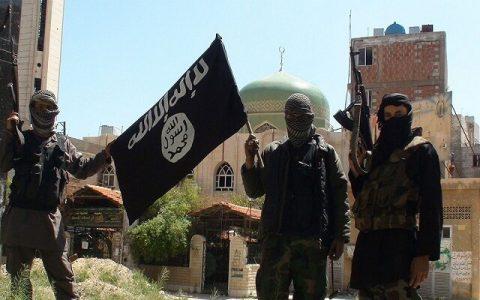
ISIS terrorists kill 6 Red Cross workers in Afghanistan
Six employees of the International Committee of the Red Cross were killed and two others were missing after an attack in northern Afghanistan on Wednesday that officials attributed to local affiliates of the Islamic State.
“This is a despicable act. Nothing can justify the murder of our colleagues and dear friends,” the head of the I.C.R.C. delegation in Afghanistan, Monica Zanarelli, said. “At this point, it’s premature for us to determine the impact of this appalling incident on our operations in Afghanistan.”
The Taliban, who still inflict the largest share of violence in the 15-year war that has escalated in recent years, quickly denied that they were behind the attack.
The Red Cross has a 30-year history of helping war victims in Afghanistan, providing crucial medical aid to areas near the battlefield among other things. The insurgency also relies on Red Cross volunteers to retrieve the bodies of their dead in large parts of the country and to help families of their detainees communicate with them in prison.
But in a recent report, the Red Cross expressed concerns about “the shrinking access of humanitarian aid workers in numerous parts of the country” because of “the intensification of conflict related violence.”
The governor of Jowzjan Province, Lutfullah Azizi, blamed Islamic State affiliates for the attack.
Mr. Azizi said the Red Cross had begun a mission to distribute livestock material in Qush Tepah area of Jowzjan Province, where the attack happened, but their mission was paused by recent avalanches. When workers went to resume the aid distribution, they were targeted.
“They were a team of eight people in three vehicles, including three drivers and five staff. Islamic State attacked the convoy, killed the three drivers and three staff members on the spot and took two staff members with them,” Mr. Azizi said.
Mr. Azizi said Qush Tepah, about 37 miles from the provincial capital, is rife with militant groups, including five Islamic State factions totaling about 200 fighters.
Officials and analysts were conflicted about the initial forays of the Islamic State in Afghanistan, when groups of Pakistani and Afghan former Taliban claiming affiliation to the terrorist group started wreaking havoc in the east of the country beginning in 2015. Nonetheless, major military operations were started to keep the Islamic State’s foothold mostly restricted to several districts in eastern provinces.
Over the last year, the concern about the group has increased as it has claimed some deadly suicide attacks in urban centers. The United Nations said civilian casualties caused in attacks claimed by the Islamic State had seen a tenfold jump in 2016.
The group on Wednesday issued a statement claiming the latest deadly attack in Kabul, which killed at least 21 people near the country’s Supreme Court.
In recent weeks, officials in northern Afghanistan also have expressed concern about an increase in foreign fighters there, many of them suspected of affiliation with the Islamic State.
Sarwar Hussaini, a spokesman for the northern police zone, said foreign fighters in five northern provinces numbered about 600.
“They are fighting for both the Islamic State and the Taliban, as well as some other terrorist group,” Mr. Hussaini said. “The foreign fighter started coming to the north of Afghanistan about three years ago, and now we are worried about the number of foreign fighters who are active here.”
Source: /NY Times





